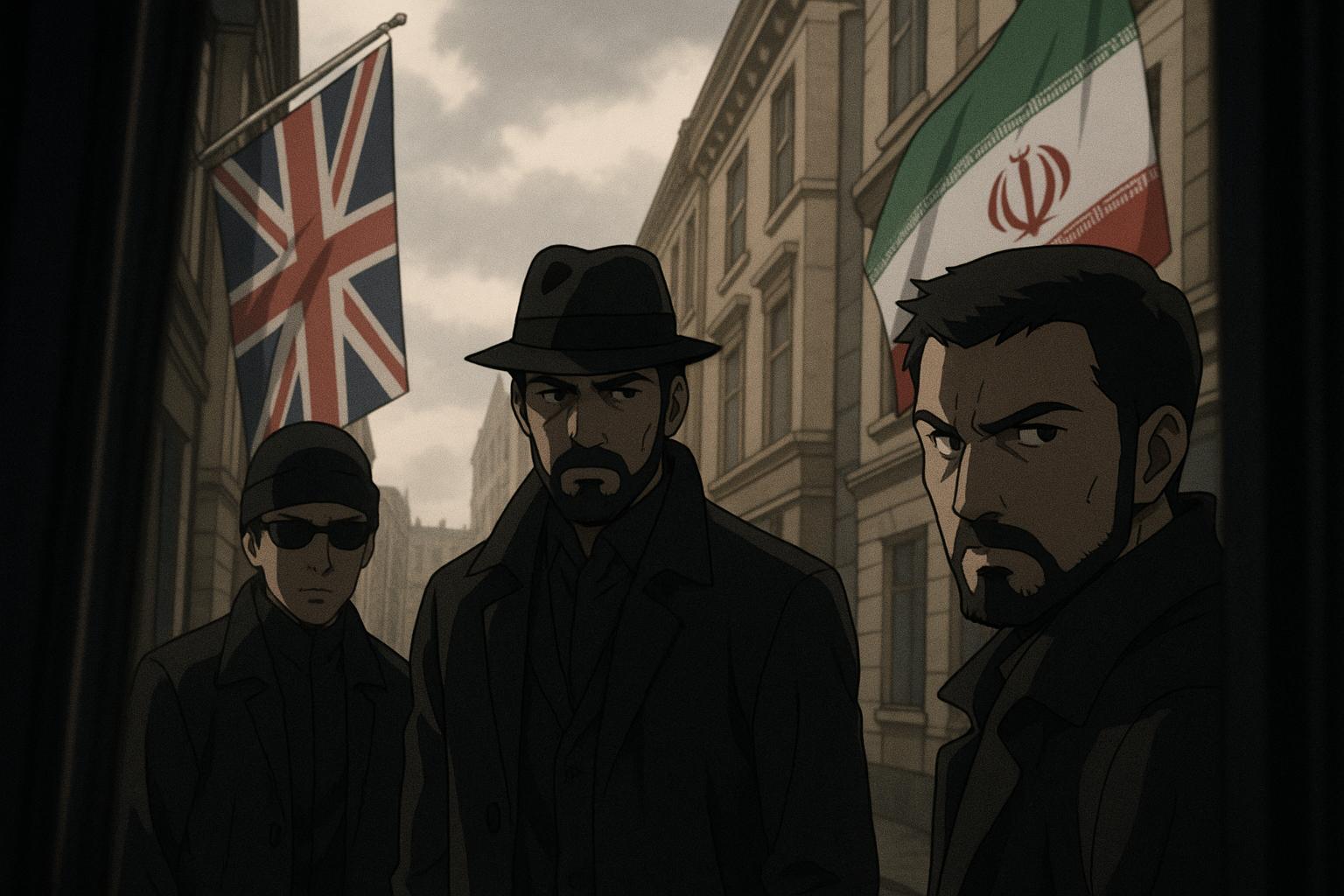Tensions between Iran and the UK have sharply intensified following the recent espionage charges against three Iranian nationals residing in Britain. The trio—Mostafa Sepahvand, Farhad Javadi Manesh, and Shapoor Qalehali Khani Noori—were arrested on May 3 and subsequently charged with plotting serious violence against British-based journalists, alleged to be acting on behalf of Iran's intelligence services. These charges are the latest chapter in a complex web of geopolitical strife, underpinned by a broader narrative of espionage and counterespionage between the two nations.
The UK Ministry of Defence has been clear in its stance: protecting national security is paramount, and Iran must face accountability for its actions. The Foreign Office's response included summoning the Iranian ambassador to the UK, Seyed Ali Mousavi, in a formal protest against what British officials termed “unjustified” arrests. Conversely, Iran's Foreign Ministry has labelled the detentions as politically motivated, warning that further such actions would damage diplomatic relations.
Reports indicate that the alleged espionage activities occurred over a period stretching from August 2024 to February 2025. Investigators assert that the three suspects were involved in surveillance missions aimed at locating journalists linked to Iran International, a Persian-language news outlet that has been critical of the Iranian regime. This outlet has clearly become a focal point for Iranian intelligence efforts in the UK, reflecting the broader threat landscape that British security services are now grappling with.
The case has unfolded against a backdrop of increasing incidents that have raised alarms about Tehran's operational footprint within the UK. The domain of counterterrorism has been particularly active; in addition to the recent arrests of Sepahvand, Manesh, and Noori, the Metropolitan Police were also involved in detaining four other Iranian nationals who were suspected of preparing terrorist acts. All but one of those apprehended have since been released, but the rapid developments suggest an ongoing investigation into broader threats emanating from Iranian state actors.
Yvette Cooper, the Home Secretary, underscored the serious nature of the terrosism threat, leading to a review of the UK’s counterterrorism strategy concerning state threats. The National Security Act introduced in 2023 provides law enforcement with enhanced powers to counter foreign interference, which aligns with the authorities’ focus on ensuring that the UK remains a safe haven against unwarranted espionage activities.
Iran has categorically denied allegations of orchestrating a spying mission in the UK, asserting that such claims are unfounded attempts to frame the nation in a negative light. This diplomatic tug-of-war is occurring during a period marked by a series of international incidents that have further deteriorated relations between Iran and the West. Since protests erupted in Iran following the death of Mahsa Amini in September, international observers have raised concerns about human rights violations and the Iranian government's increased authoritarianism, complicating geopolitical relations.
The actions in the UK are particularly resonant against a backdrop of heightened Iranian hostility; Iranian officials have faced criticism for executing dissidents and obstructing free speech, culminating in widespread condemnation from Western governments. As such, each new disclosure regarding espionage plots adds another layer to the already fraught narrative of Iran’s engagements abroad.
Given the gravity of these developments, the situation remains perilous. The three Iranian nationals are scheduled for a court appearance on June 6, and as investigations continue, the implications for both countries could be significant. The response from both diplomatic ends signals a turbulent period ahead, with potential repercussions for international policies and national security strategies on either side.
As the situation unfolds, the UK government remains resolute in its commitment to national safety and the principles of accountability, while Iran continues to decry what it regards as unjust provocations. The dialectic between cooperation and hostility will likely shape future interactions between these two historically adversarial nations.
Reference Map
- Paragraphs 1, 2, 3, 4, 5, 6, 7.
- Paragraphs 1, 2, 3, 4, 5, 6, 7.
- Paragraphs 1, 2, 3, 4, 5, 6, 7.
- Paragraphs 1, 2, 3, 4, 5, 6, 7.
- Paragraphs 1, 2, 3, 4, 5, 6, 7.
- Paragraphs 1, 2, 3, 4, 5, 6, 7.
Source: Noah Wire Services
